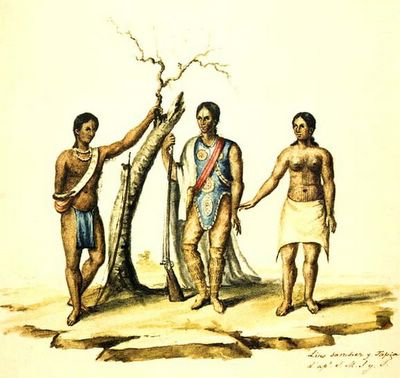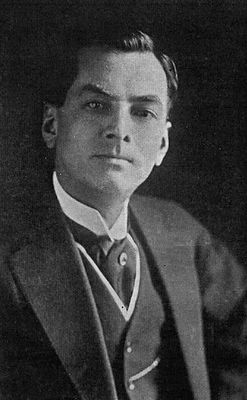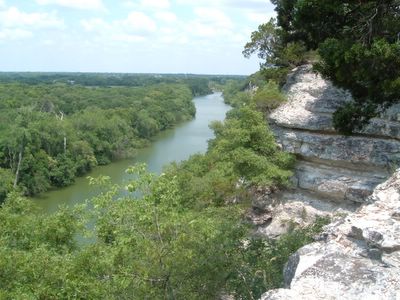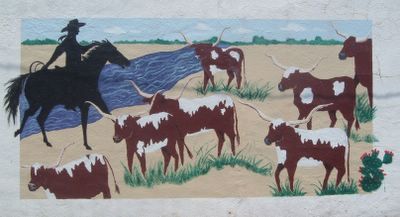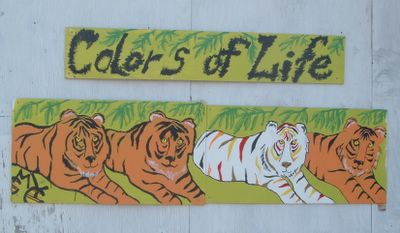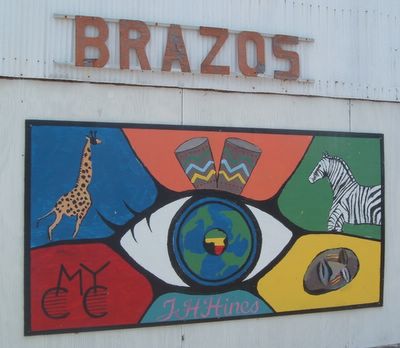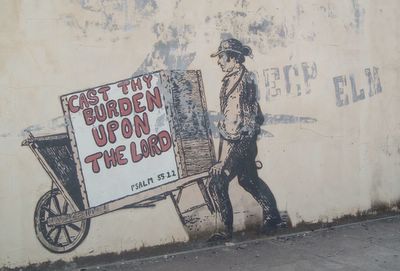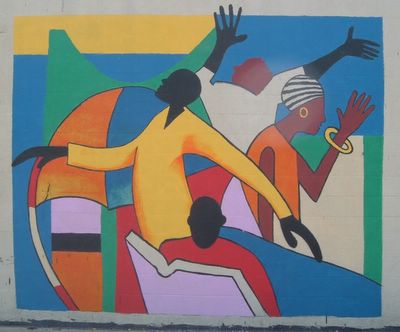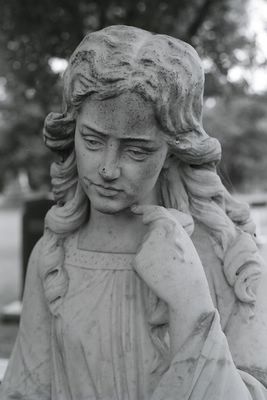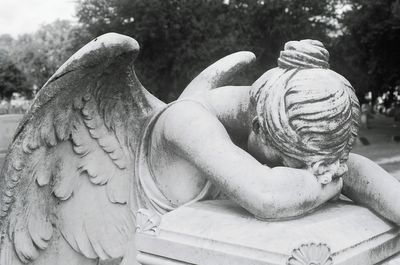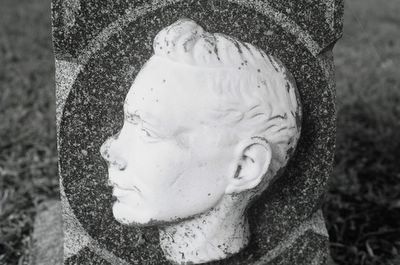The next letter from J.W. Weaver printed in the newspaper was written almost a month after his previous one. By this time, he has beaten the odds by arriving in the gold fields alive and in good health. He recounts the incredible effort it took just to make it to Dawson City.
Waco Times-HeraldAugust 22, 1898
KLONDIKE PERILSTHRILLING LETTERJ.W. WEAVER OF WACO REACHES DAWSON CITY AFTER MANY NARROW ESCAPESINTENSELY DRAMATIC TALETold in the Communication of Weaver to His Wife -- True to Fact, Exciting As a NovelJ.W. Weaver of this city, who left Waco February 15 last, with Ed Blocker, for the Klondike country, has at last reached Dawson City, and is now in the mines seeking the treasure which is said to be in the frozen ground of that cold country. He has been heard from on several occasions, but the most interesting letter he has yet written has been received from him since he reached Dawson City. It has required less than thirty days for this letter to reach Waco although his experience shows that it required him thirty days to make a fifty mile trip in the land of glaciers and ice.
A careful reading of the letter will discourage one who has an idea of trying his fortunes in the far northwest. Mr. Weaver is well known, and those who have his acquaintance know that he speaks the truth in every line he utters. He gives a fine description of his journey. The letter, which was to his wife, Mrs. Kate Gerald Weaver, in this city, is as follows:
"Dawson City, July 20, 1898 -- After a long, arduous, toilsome, weary and trying journey of four months and ten days, we have at last reached the metropolis of this northern country. I will say this for the benefit of those who may desire to come after, to this forbidding land, that had I known of the terrible dangers I would have never undertaken the trip.
The hardships are extreme to be sure, but are as nothing compared with the actual dangers which require the greatest caution and alertness on the part of the most experienced boatmen, while it must be increased ten-fold to the inexperienced.
However, I have had the utomost faith and confidence in my own good judgement and ability and my success thus far has proved conclusively (to myself at least) that I am more than ordinarily cautious and alert in places of dangerous and rapid, rocky waters, besides being possessed of considerable nerve under the most trying circumstances.
I will now give you a few personal experiences, after reading which you will doubtless reach somewhat the same conclusion as myself as to what it takes to make a successful trip to this land of snow slides, ice gorges, rapids and whirlpools. I will leave the boat at Skagway and start out on the trail and take you through the whole trip, with as few breaks as possible, from start to finish.
We left
Skagway on March 19 and went fifteen miles up Skaguay river to the foot of what is known as Porcupine hill, the name being given on account of the steep succession of short bluffs or perpendicular hills, which bristle on every side and which it is necessary to wind around in order to reach the summit with even a small load of say fifty pounds. We there made camp for the night, and after cooking our supper, prepared our beds, which we did by cutting the tops of pine limbs and making a pile on the snow, and laid our sleeping bags on top of them. At this time there was some six feet of snow on the ground which continued to move under pressure of the draft up the can(y)on, making it extremely unpleasant for us.
After leaving this camp the next morning we proceeded to move up the trail for some four or five miles, packing our goods on our backs, sometimes fifty pounds, forty-five and then one hundred pounds at a time, going backwards and forwards making five or six trips a day until the whole of the goods were moved up to the summit, which by the way is only fifty miles from the seaboard, but it took a month to make it, even with the assistance of the most powerful ox on the trail.
We were moving alongside of a precipice covered with ice and snow made slippery by the constant travel of oxen, horses and mules, when our traveling sleds swerved out of the narrow trail, which was only thirty inches wide, and although there were four men to watch it, the whole thing, the ox and all, went over the bluff and rolled into the water below, a distance of twenty-eight feet.
Although badly scared at our narrow escape, and while working in cold ice water, full of ice and snow, the boys were as jolly as though sitting around a camp fire, talking over the experiences of the day or planning for the future. It was, however, a very narrow escape, as had one of the sleds struck us or the ox rolled over us, there would have been no one to tell the tale, but thanks to our ever-watchfulness, we came out without a scratch, and with only wet feet and legs, the latter being anything but comfortable.
At the same time we did not suffer from cold except Ed Blocker, who suffered from back trouble considerably on the whole trail and he now says that it is a wonder he did not succumb to the extremely hazardous undertaking.
Of course, we had numerous hair breadth escapes of various and sundry kinds, all the way up to the White Pass, and had to do an enormous amount of heavy lifting to prevent sleds from turning over, and when once over to right them again, which in itself is very hard and heavy work, and which but few men are equal to, yet I stood it better than any one of the four in our crowd.
Our next experience was in climbing the White Pass. Up this trail for about two miles, the ox, which could pull on the level 3,500 pounds with ease, could pull but 350 pounds, and while ascending with this one day, he became unmanagable and decided that he preferred going down the side of the snow-covered precipice, a distance of some quarter of a mile, and he rolled over and over, mixing up sleds and snow and flour and bacon and beans and other things of precious value until he reached the bottom unhurt, but considerable wiser for his unpleasant experience, as he never attempted to repeat the experiment.
Of course we had to go to the bottom of the hill, reload our goods and wend our way through an unbroken trail for about three-quarters of a mile, and then ascend the same old trail, each doing everything in his power to assist the poor ox, who was straining every nerve to keep the narrow, slippery and precipitous trail with the load he had behind him, which we finally succeeded in doing, and reached the summit.
Now we have reached the summit of White Pass, which is considered the FIRST DANGER, and although not so dangerous possibly as
Chilcoot, it is, with its terrific blinding blizzards by no means a pleasant undertaking, especially at the season of the year we crossed it. Still we lost nothing whatever, nor did we suffer any particular hardship from cold, although this was extreme at times, the coldest being about 20 degrees below zero.
It is not so much the cold as it is the driving, whistling winds that are so hard to contend with, and the only clothing that will thoroughly protect a man against these are furs or leather outside and wool or silk next the body.
The next danger of any moment which the Klondiker experiences (if he stays and builds his boat at
Bennett or Linderman) is the can(y)on and rapids between these points. Here a large number lost their outfits and boats quite a number, probably fifteen or twenty, lost their lives in going down with their boats or scows. This can(y)on is known as the 'Second Danger.'
'The Third Danger' is
Lake Tagish of Windy Arm of Tagish, where a number of boats were lost in the ice gorge or in the swirls which are very treacherous and come up without a moment's warning and dash the unwary sailor against the rocks and boulders which line this shore. Several lost their lives here by not making close calculations of the weather and daring to go out too far from shore and were caught in the swells.
The Fourth and Fifth Dangers are
Miles canyon and White Horse rapids. While some people consider these very dangerous, I do not think there is anything serious about them, that is so far as we were personally concerned.
There was only myself and a man named Clark to go through in our boat, while almost every other boat great and small had at least three and sometimes four and five men, the object being to get as much oar power possible to enable them to throw the boat around at a moment's notice and avoid the rocks, but we (Mr. Clark and myself) shot
the canyon and White Horse rapids, and never touched a rock or shipped a drop of water, while over one hundred and fifty boats were wrecked, with all goods lost, and forty-two persons have lost their lives this season up to and including June 15.
Now I do not intend to boast of being at all smart, brave or nervy, but there is a good deal in the use of common sense and judgement, and to never lose one's head.
The Sixth Danger is Lake La Barge, a beautiful sheet of water, twenty-five miles long and about an average of four miles wide, very deep and what is said of Tagish is also true of La Barge, a large number having ventured too far from shore in their efforts to get through quickly and catch a little wind in their sails, lost their lives, among them being an English Episcopalian minister, a woman and a little boy of seven years.
We built our own scow, sawed our own lumber, and brought our boat through all dangers of every kind and description. I, personally, never left her at all except to go ashore to cook. I have stayed with her through thick and thin, and she has done us faithful service, never leaked one drop or spoiled one ounce of goods. I named her Kate of Waco.
The other boys have from time to time gone for miles on other boats, but Kate never travelled a mile without me, and now I hate to part with her, but I must as soon as I finish this letter, to prepare for more arduous toil and danger.
We leave here for the mines, a distance of twenty-five or thirty miles, on foot, with sixty-five pounds of provisions on our backs, besides our beds and cooking utensils.
I forgot to mention that on Lake La Barge we had several quite interesting experiences, the first being with ice moving about the lake, which came near being disastrous to the boat. Twenty-five of us tried our best to make from one point of land to another, between the ice floes, but our leader (an old river man also a Yukoneer) miscalculated the rate ice was traveling and we were all caught and held in the ice for thirteen hours, in fact from 6:30 in the evening until 7:45 the next morning, but while the others left and went ashore, I stood by 'Kate' and never gave up my efforts all night long to keep the ice down, which was piling up on all sides and into the boat.
I worked with all my might and main, with shovel and pole, to keep the ice out and the boat afloat, and I succeeded, thanks to my Welsh determination and sleepless energy. Otherwise I would have been without grub for the winter, and would have had to come back home.
My next experience was somewhat different. Three of us were out hunting grouse with our rifles, and came across an old she cinnamon bear. As soon as she saw us she made off, but a load from one of the rifles caused her to halt and right about face, and for us she came. She was about seventy-five or one hundred yards away, and was spitting like a cat and evidently about as mad as a hornet.
Seeing she was coming towards us, the old hunter, a Californian, told us to have our rifles in readiness and wait until he told us to fire. When she was within fifty yards of us, the order came and the three Winchesters cracked together, all striking Mrs. Bear broadside. Still she came on at the same old pace. We threw our shells, reloaded, and fired again. Still on she came, spitting and snorting, all of us firing directly back of the front leg. This apparently had no effect whatsoever.
We had but little time to argue, so without saying anything to the old hunter I changed my tactics and aimed a well-directed bullet at her forehead, which brought her to the earth with a thud and a grunt, and when we skinned her she was so tough as to be almost useless, except for making soup and to sell. An examination showed we had sent thirteen bullets in her, making a total of twenty-one pellets of lead before she dropped. I also killed a large water fowl called a 'loon.'
Our next danger was
Thirty Mile river, which is the most dangerous piece of water it has been my experience to have anything to do with. It is more than the canyon, rapids, lakes or anything else. It is very swift and full of rocks and sand bars. In fact it was like
Scylla and Charybdis.
We rowed off one on the other, and this was the case for thirty long miles under a broiling sun with boats wrecked and people calling for help on all sides, and we helpless ourselves to do anything for them, except to pass them like a flash, without even giving them a passing look of pity.
When we at last got through, I found myself nearly blind by long gazing on the sunny water looking out for rocks ahead, my face all blistered, and so tired that I could scarcely stand.
Goods such as sacks of flour, beans, bacon, sugar, and boxes of every conceivable shape and size floated by us on their way to destruction or the sea, while sheep, dogs, horses and mules were lined along the steep banks of the river, all having swam ashore except the poor sheep, which were weighted down by their coats of wool, and were drowned. I presume, and it is the general estimate, that over $100,000 worth of goods was lost in this river alone this season, while it will never be known how many lives have been lost, as the bodies drift into the deep Lewis river and are rarely found.
Several lives have also been lost on
Teslin lake and Hootalinqua river, among them a woman and a little girl. I am of the opinion that the catastrophe of the Chilcoot Pass was but a drop in the bucket compared to the loss along the rivers and lakes.
The next danger is
Five Finger rapids, which is something like the Miles canyon, but possibly a little more dangerous on account of the extremely small opening through which we had to pass, it being not over thirty feet, while the canyon is more than fifty feet.
The Tenth Danger is nothing more than a rough piece of water, and is known as Rink rapids. I went with "Kate" through them all, and she stood all strains like a charm and brought us to destination without a flaw or break.
The only anoyance I have suffered was from mosquitoes. They are very plentiful, large and avaricious, and never fail to leave their mark. This has been the only mar to my fishing experience.
After leaving Five Finger rapids, we stopped for a rest of a few days at a small stream called Tasshun river, where we had the most remarkable fishing experience I ever had. I made some artificial flies, and caught 300 pounds in half a day, in fact supplied the whole camp with
fresh Alaska grayling, one of the finest fishes in the whole world. How we enjoyed them, as we had eaten but very little besides pork, grouse and bear. I am afraid that we have eaten so much bacon, that it will be a shameful task to meet a live hog when we return to civilization.
It is a great pity to see so many who came in here with the expectation of finding gold along the shores of the rivers and on the trees, but who are now actively disgusted, and several thousand have sold out and returned home, and others are selling their outfits and going back every day. Had I know what I know now, I would have brought nothing in here at all, but enough delicacies to carry me through, and could have bought here all I wanted at less than cost in the states. I can now buy goods here at cost, twenty cents per pound, without counting for the people's time, which has consumed over four and a half months, besides the risk to their property and lives in bringing it in.
I got up yesterday morning and saw what I thought to be a great big mule swimming to the mainland. After rubbing my eyes I saw that it was neither a mule or horse, but a
moose. I fired a shot, which missed the mark. The moose turned around and brought her broadside to me. I took good aim, and sent a bullet through her spine. She sank. We got a small boat and with the aid of a block and tackle landed a two year old heifer moose weighing 800 pounds. The rug I will use for winter in front of my cabin fire. The meat is the tenderest I have ever eaten. It is delicious after so much salt pork.
Since April it has never been dark enough for me to see the stars in this country. In fact it has never been dark enough to prevent us reading the smallest print at midnight. I shot a loon at 3 o'clock in the morning, while he was about one hundred yards away from me, and put out both eyes.
While fishing I sat on a log and pulled out twenty-eight fish without moving, and they weighed two and a half pounds each. I used to go out sometimes with my rubber boots on to the middle of the river. I caught them so fast that I dropped my hook in the creek, and while I was putting the fish in my rubber boots, the fish in the creek would fight for the fly, and would be hooked before I could get to the line again.
Ambold, a brother of H.E. Ambold of Waco, is here. He is worth between $175,000 and $200,000 and increasing in wealth daily.
J.W. WEAVER"
--------------------------
Weaver's next letter, dated July 24, 1898, was printed in the same issue of the newspaper.
Waco Times-HeraldAugust 22, 1898
"As the boat with the mail was delayed, I have decided to end on this letter with a Mr. Blevins of Dallas county, Texas, who is disheartened and is leaving the country. He has promised to mail it at the first post office after he gets out of here.
We had a horse and ox belonging to our party, and we of course had to build a raft, to raft them down the river, which we did at the confluence of the Hootalinqua and Lewis rivers, and blocker and several others brought the raft with our stock to Fort Selkirk, and thence to Dawson, but we had some pretty severe experiences with the raft.
For instance, opposite the Stuart river, seven miles from Dawson, we were in water up to our waists for thirteen hours, trying to get the raft off a gravel bar. Still we did not suffer at all, neither from the hard labor attached to the position, nor have we had the slightest cold, although the water is principally melted snow and ice. Of course it was very unpleasant while in the water, but succeeded in getting the raft off and into Dawson, and sold it for cord wood at the rate of $20 per cord, netting us $236, to be divided among three of us.
We see nuggets here of all sizes, and gold dust is the currency of the country. Everywhere you see them weigh out gold dust, and rarely see anything else. Whenever a man buys anything from another, the purchaser invariably turns over his leather bag of gold dust, and never notices what the seller weighs out of it. In fact it seems to be a loose way of doing business, but custom controls and this is one of the peculiar customs of a mining camp and this is undoubtedly the greatest mining camp the world has ever seen.
J.W. WEAVER"
